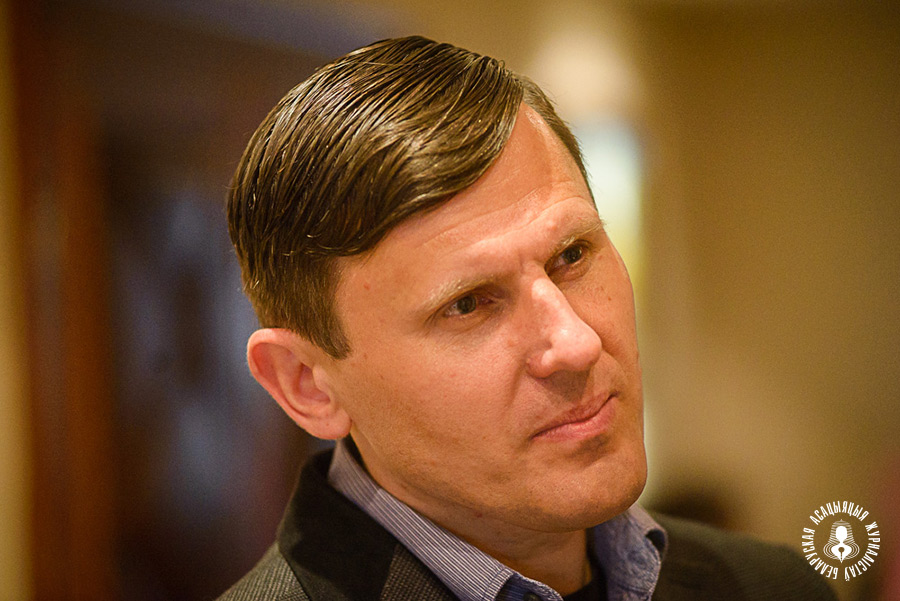Polish lawyer denied access to case of journalist Aliaksandr Burakou, who is banned from entering the Schengen Area
Poland was the country that initiated the journalist’s ban, and for several years Aliaksandr Burakou has been trying to uncover the specific allegations that resulted in his prohibition from entering multiple Schengen Agreement member states.

Aliaksandr Burakou. Photo: BAJ
Failed legal strategy
Aliaksandr Burakou Sr.’s interests in Warsaw are represented by lawyer Piotr Sawicki. They have been working together for three years and developed the following strategy: the lawyer advised seeking an explanation of the grounds on which the journalist was entered into the SIS database (the Schengen Information System, used for security measures) in order to challenge the ban. Burakou was unable to do this on his own.
“My lawyer appealed to the Voivodeship Administrative Court in Warsaw, and on July 9, 2024, the court ruled that the refusal to provide access to the materials of my case was unlawful. The lawyer continued working and appealed to the relevant administrative bodies.
But on July 21, 2025, a response came from the Head of the Office for Foreigners: despite the court’s decision, access was denied again.
The explanation was that the basis for my inclusion in the SIS is covered by specific legal provisions that deny foreign nationals the right to access such documents,” explains Aliaksandr Burakou.
Banned without ever entering Poland
According to the journalist, he tried to figure out on his own what he might have violated to be subjected to a Schengen entry ban. But it remained a mystery: on March 2, 2021, he received a Polish humanitarian visa without any issues, but never got the chance to use it because he needed to relocate to Lithuania. When, two months later, Burakou submitted documents to the Lithuanian embassy, it turned out that at Poland’s initiative he had been entered into the list of persons posing a threat to Poland’s internal security — even though he had never entered the country.
Burakou suspects the cause may trace back nearly two decades:
“In the mid-2000s, during my work as a journalist, there was a serious conflict over the use of funds for acquiring equipment. This happened in Poland, and I was the author of a letter that we sent to the Polish Ministry of Foreign Affairs, which was funding the project. As a result, the equipment was urgently purchased, but soon after I was stopped at the border and my visa was canceled.”
At that time, Burakou was banned from entering Poland for three years. But later, he repeatedly obtained Schengen visas from the Lithuanian embassy, crossed the border without issues, and visited EU countries.
Ban expires in eight months
According to the document Burakou has, he is banned from entering Schengen countries until March 2, 2026. This time, however, he does not think it makes sense to just wait it out:
“Probably, if after the first ban I had started clarifying the grounds, this situation wouldn’t have happened now. But now, with my lawyer, we plan to appeal to a higher court so that our rights are upheld. Because if Poland is considered a rule-of-law state, then a basic principle should apply: if the court has ruled, it must be followed. Otherwise, any Belarusian seeking refuge in Europe from political repression could end up in my situation.”
At present, Aliaksandr Burakou Sr. is forced to live in a country outside the Schengen Area. The journalist left Belarus due to politically motivated persecution.
He worked as a freelancer for Belsat, Radio Racyja, and Deutsche Welle. After the 2020 protests, he was detained twice for his professional activities and put in administrative detention. Burakou even went on a hunger strike in a detention center to protest the inhumane conditions for detainees.
In February 2021, officers from the anti-extremism unit arrived at the journalist’s home with a search warrant but effectively conducted a full-scale wrecking of his apartment. They ripped apart his sofa, cut open his pillows, tossed food around the kitchen, and rifled through a basket of dirty laundry. Ultimately, they confiscated a laptop, a phone, and several flash drives.
 @bajmedia
@bajmedia
